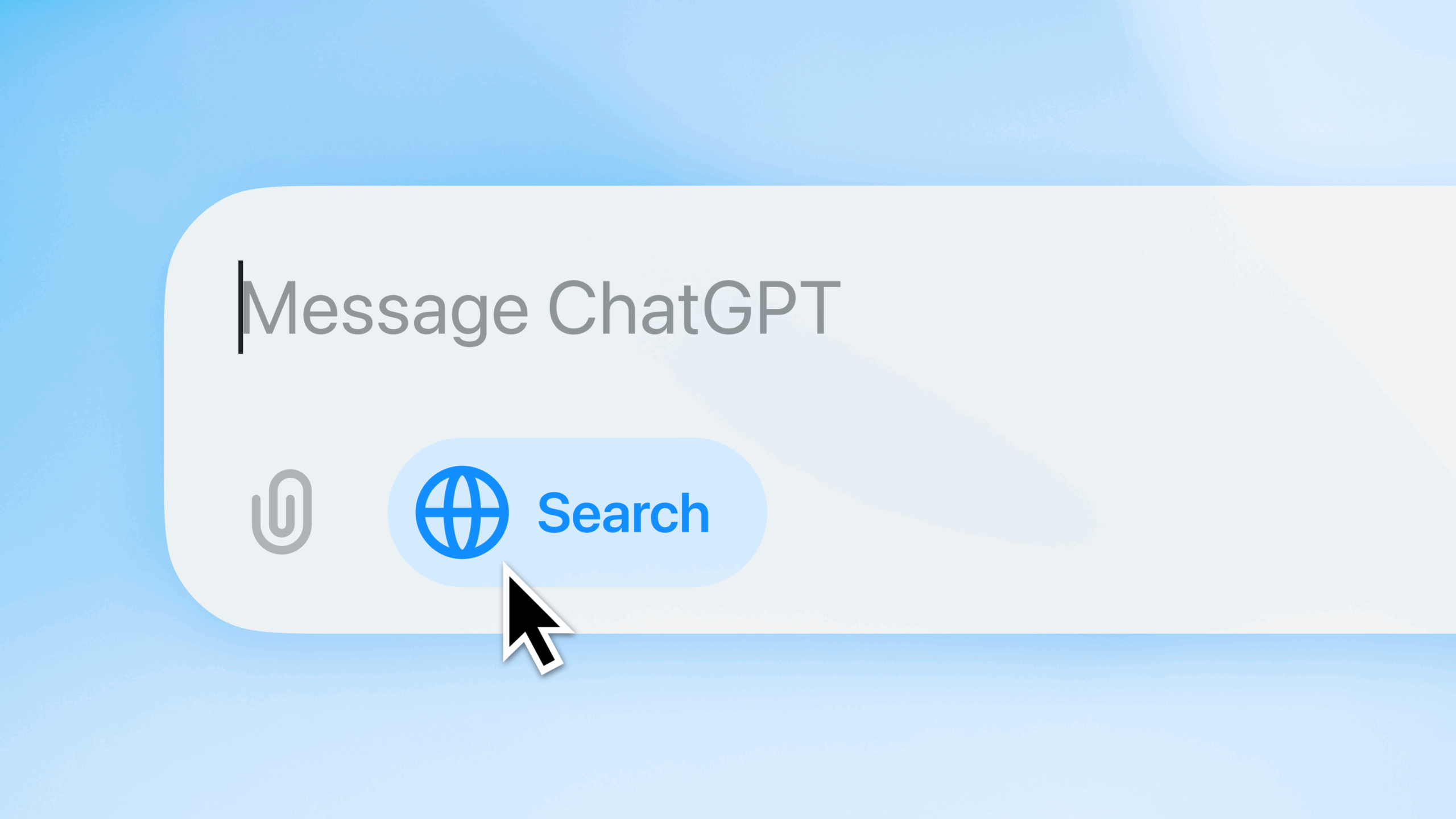There’s a myth that AI is replacing search. The reality is that AI leans on search more than ever.
OpenAI is building the world’s smartest processor, but it has no hard drive of its own. Imagine a computer that can run incredible programs but has nowhere to store the files.
ChatGPT can analyze, reason, and connect dots, but it still needs access to external sources. That is where Google and Bing come in.
Think of them as the shared drives AI connects to. No matter how advanced the processor becomes, it cannot use information it does not have. SEO is what puts your expertise in the right folder so the machine can find it.
Without Google or Bing feeding it reliable information, ChatGPT is like a dentist trying to diagnose without patient records or digital scans. The tone may sound confident, but the chance of a wrong call skyrockets. SEO ensures your records are accessible to AI when it retrieves information to answer patients’ questions.
ChatGPT is not a storage device. Think of it as a search interface. It does not keep every file on its own drive. It knows how to request the right file and summarize it quickly.
This is why SEO has never been more relevant. Every time someone asks ChatGPT a question, the model must pull from a source. SEO is the gatekeeper that determines whose files get opened.
How I Tripped over SEO Success Almost 20 Years Ago…
Back in 2006, I built my first website with a strategy of incorporating as much multimedia content as possible.
I’ll spare you the stories of how I wildly underestimated the technical challenges back then: encoding video, managing slow load times, clunky hosting setups. It was a nightmare.
But out of that nightmare came invaluable lessons I still use to this day, and that I recommend to every client I work with now.
Our strategy for Dr. Hang’s Face Focused website was simple but different. We built a library of video content when nobody else in the field was doing it. Patient testimonials. Interviews. Educational clips from his lectures and courses.
We paired this with explanatory written content and published research that was relevant to patients, peers, and the broader conversation about airway health.
We did not hire expensive SEO vendors. We did not play tricks with keywords. We just created valuable, differentiated content. And it ranked consistently.
That early experience proved something I have never forgotten: the technology may change, but empathetic, valuable content-first SEO keeps winning.
Why SEO Is Infrastructure, Not Just Marketing
Back then, SEO was about ranking to get more clicks. Today, it is something bigger: infrastructure.
For people: SEO ensures your answers are visible when they search.
For machines: SEO ensures your content gets pulled into the data stream that feeds AI responses.
If you are not present in search engines, you are not present in AI either.
Your Patients Are Asking ChatGPT About Their Health. Will It Find You?
When you sit across from a wellness-aware mom after she has been doom-scrolling, you can almost see the anxiety buzzing.
Her brain is overheated from a flood of contradictory advice. Dire warnings about health. Guilt-driven lists of what she is not doing enough of. Dozens of conflicting opinions on what matters most.
She cannot turn it off.
That storm of noise is the same environment your prospective patients are navigating every day. And it is exactly why clarity, trust, and visibility through empathetic, valuable content-first SEO matter more than ever.
What’s Changed and What Hasn’t
SEO has always been about visibility, but the context has shifted.
Twenty years ago, ranking high in Google was enough to reach people searching with questions. Today, that same principle applies, but with a new twist: machines are now part of your audience too.
Patients still need clear, trustworthy answers. And so does ChatGPT.
That is why some parts of the SEO playbook have not changed at all, while others have evolved dramatically.
Here’s what I suggest…
1. Keep producing personalized, authoritative content that answers both expressed and implied questions.
Patients might type airway orthodontics into Google. But what they really want to know is “What is wrong with my child?” The first question is technical. The second is emotional. SEO rewards the practices that can bridge the gap. Content that answers the medical query in the context of the parent’s deeper fear is where authority and empathy meet. When you explain not just what treatment is, but why it matters, you build trust with people and with AI.
2. Use multimedia formats (video + text) to build authority.
Text is the skeleton, but video is the living, breathing body. A patient story on video communicates conviction, experience, and compassion in a way a keyword-stuffed blog never could. When you mix formats such as articles, videos, and FAQs, you send strong signals of authenticity to both people and machines.
3. Ensure technical SEO is strong so algorithms can actually serve your content.
Great content is wasted if it cannot be found. Content without technical SEO is like a brilliant lecture given in a locked room. Search engines need fast load times, mobile-friendly layouts, and backend structures that make your expertise easy to access. Think of it as oiling the gears of your practice website so the engine runs smoothly.
4. Think in terms of machine readability as much as human readability.
Imagine telling your story twice: once to a room full of people, once to a robot taking notes. People catch nuance. The robot needs structure such as headings, schema, and clear signals of importance. Without this, you are whispering into the void. With it, you are amplified by both Google and ChatGPT.
5. Remember: SEO is not just about Google anymore — it is the entry point into the AI ecosystem.
The question is no longer “How do we rank on Google?” It is “How do we show up wherever people are searching?” When someone asks ChatGPT if their child’s snoring is serious, the AI does not invent an answer. It retrieves one. If your content is not optimized, it is invisible. For the doom-scrolling mom, that is another night of worry. For you, it is another missed opportunity.
Closing Thought
Every time a parent doom-scrolls, every time a patient asks ChatGPT a question, the machine goes looking.
Will it find you?
Or will it find someone else?
SEO is the bridge that decides. The choice is yours.
Struggling with SEO or digital marketing? Call or email me. I would love to help.
Best,
Peter
P.S. Planning your 2026 marketing? Join me on November 6 for an interactive seminar with leaders you know and trust. We will dig into storytelling, websites, video, search, social, paid ads, AI tools, and more. Seats will be limited, and details will be shared as we get closer to the date. Stay tuned.



